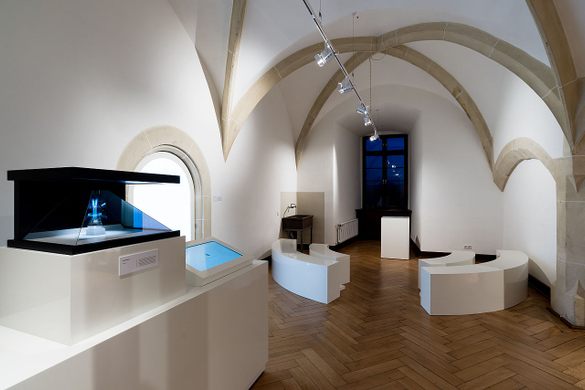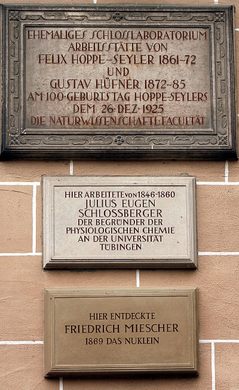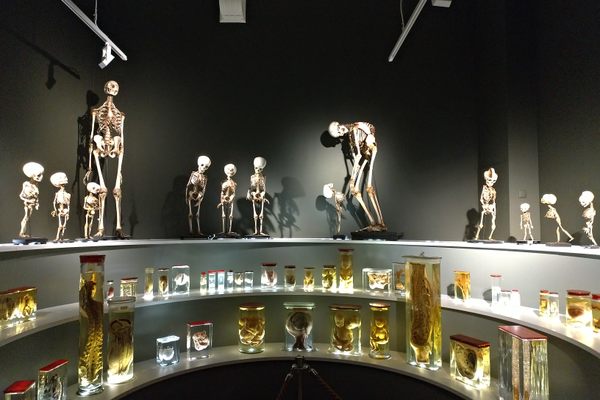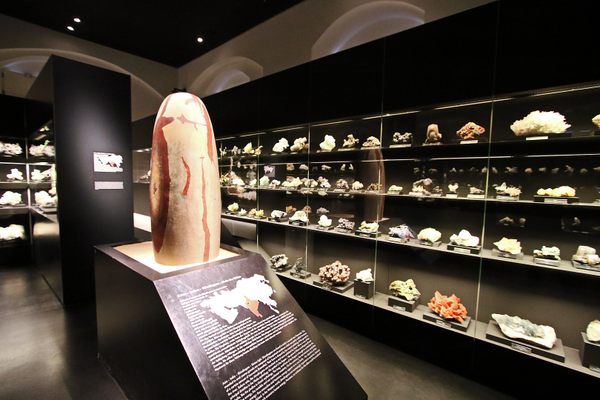Schlosslabor
The old castle kitchen where nucleic acid was first isolated is considered the "cradle of biochemistry."
In addition to its other museum and collections, Hohentübingen Castle houses the Schlosslabor, a unique collection of 19th-century objects, apparatuses, and compound samples related to early biochemistry. The collection is tucked within the castle’s old kitchen, which, for good reason, has been dubbed the “cradle of biochemistry.”
The highlight of the exhibition is the original test tube containing a probe of pure “Nuclein,” which was actually the nucleic acids RNA and DNA, the basis of modern molecular biology and medicine. Friedrich Miescher extracted it in 1869 from the nuclei of white blood cells by processing an entire ton of purulent gauze dressings.
Thanks to his incredible discovery, Miescher became famous and cemented his legacy among the pioneers of modern biochemistry. The University of Tübingen later became a well-known research center in this field.
The fact that the former laboratory was set up in the kitchen was no coincidence. Chemistry—especially biochemistry—was still a rather young science in the early 19th century. It was considered to be a service science to medicine, especially in places like Tübingen, where the humanities were extremely dominant in academic culture.
Know Before You Go
The museum is open Wednesday through Sunday from 10 a.m. to 5 p.m. Note that on Thursdays, it actually stays open until 7 p.m.
Plan Your Trip
The Atlas Obscura Podcast is Back!




















Follow us on Twitter to get the latest on the world's hidden wonders.
Like us on Facebook to get the latest on the world's hidden wonders.
Follow us on Twitter Like us on Facebook